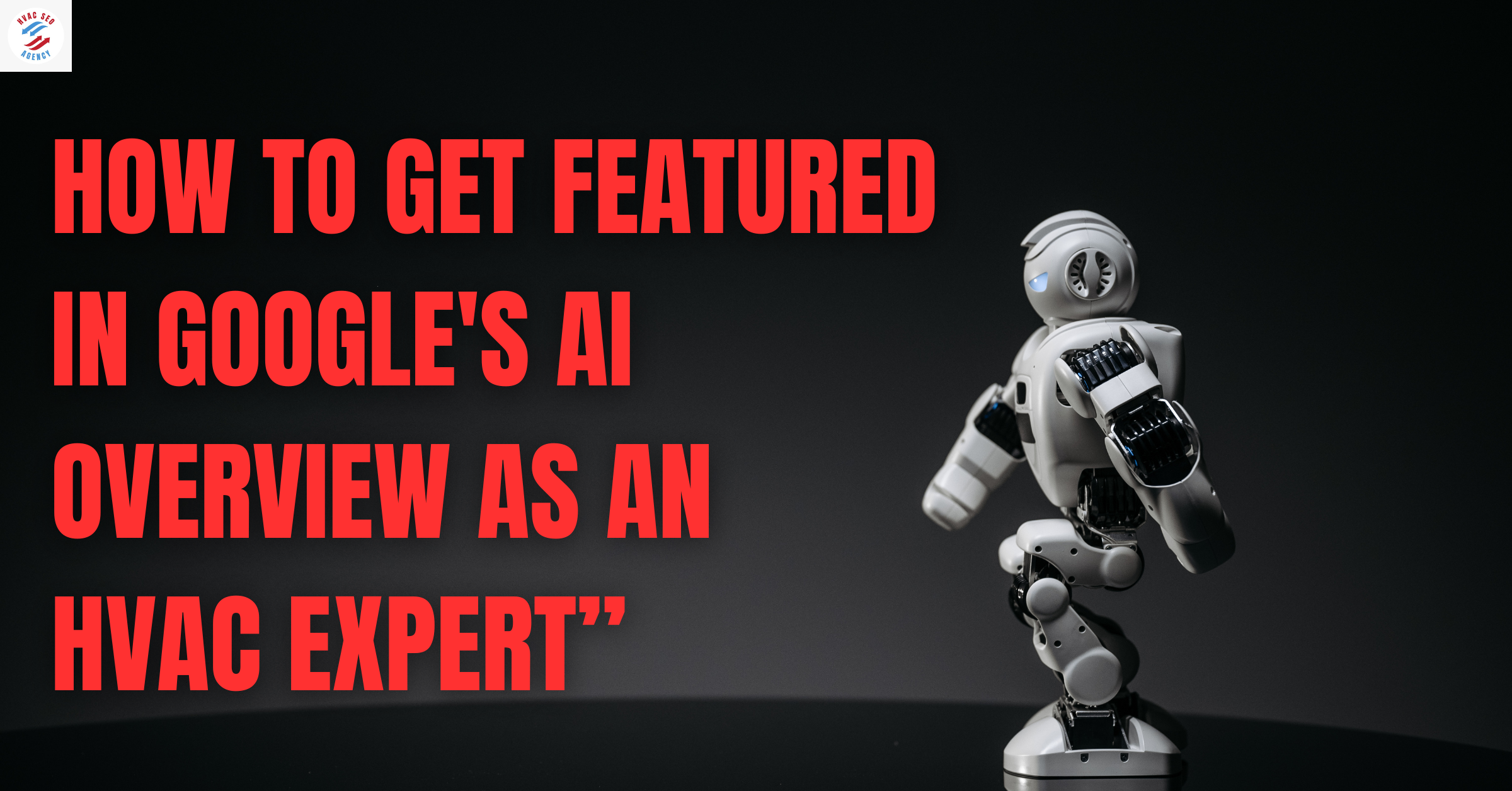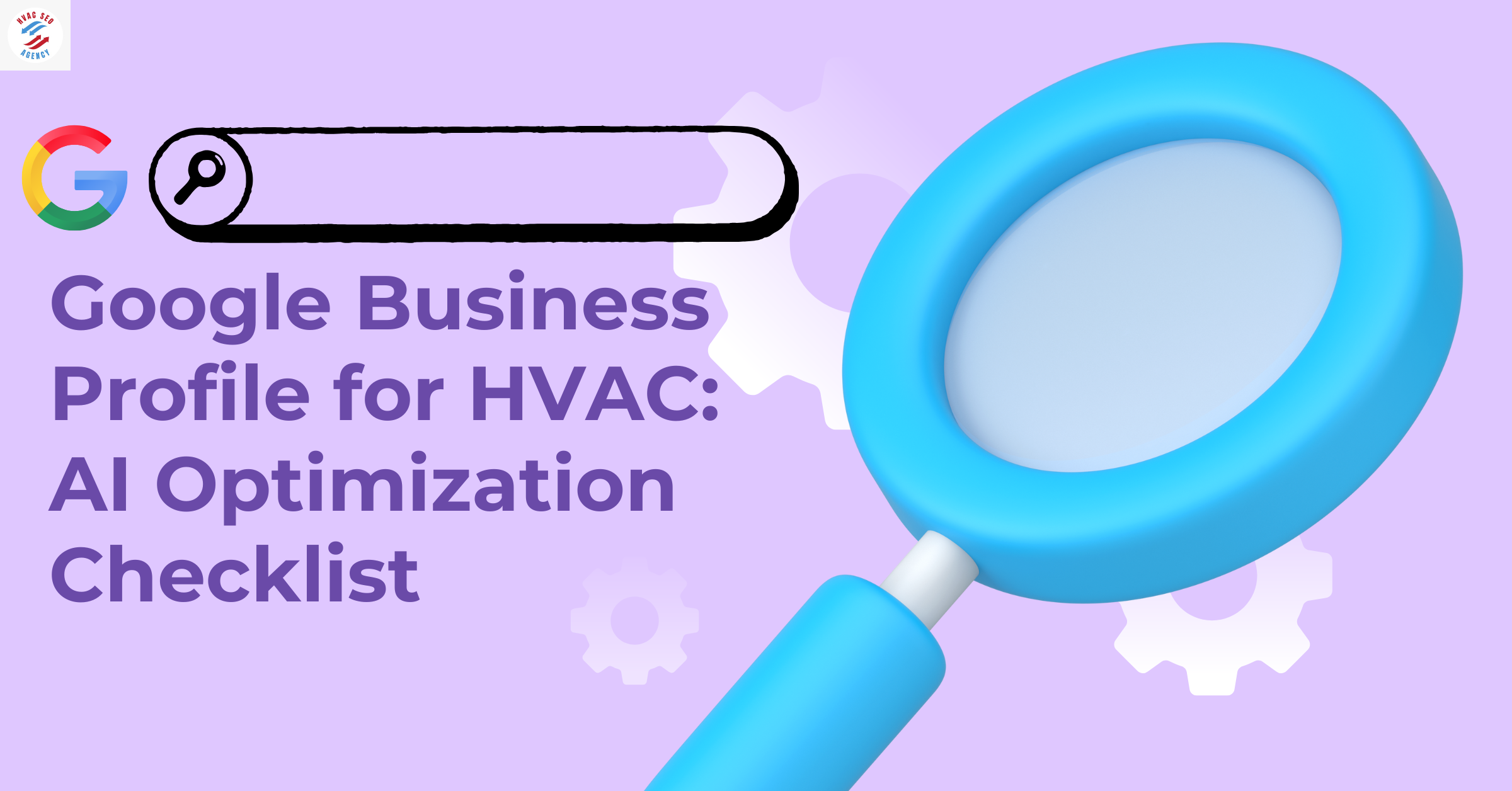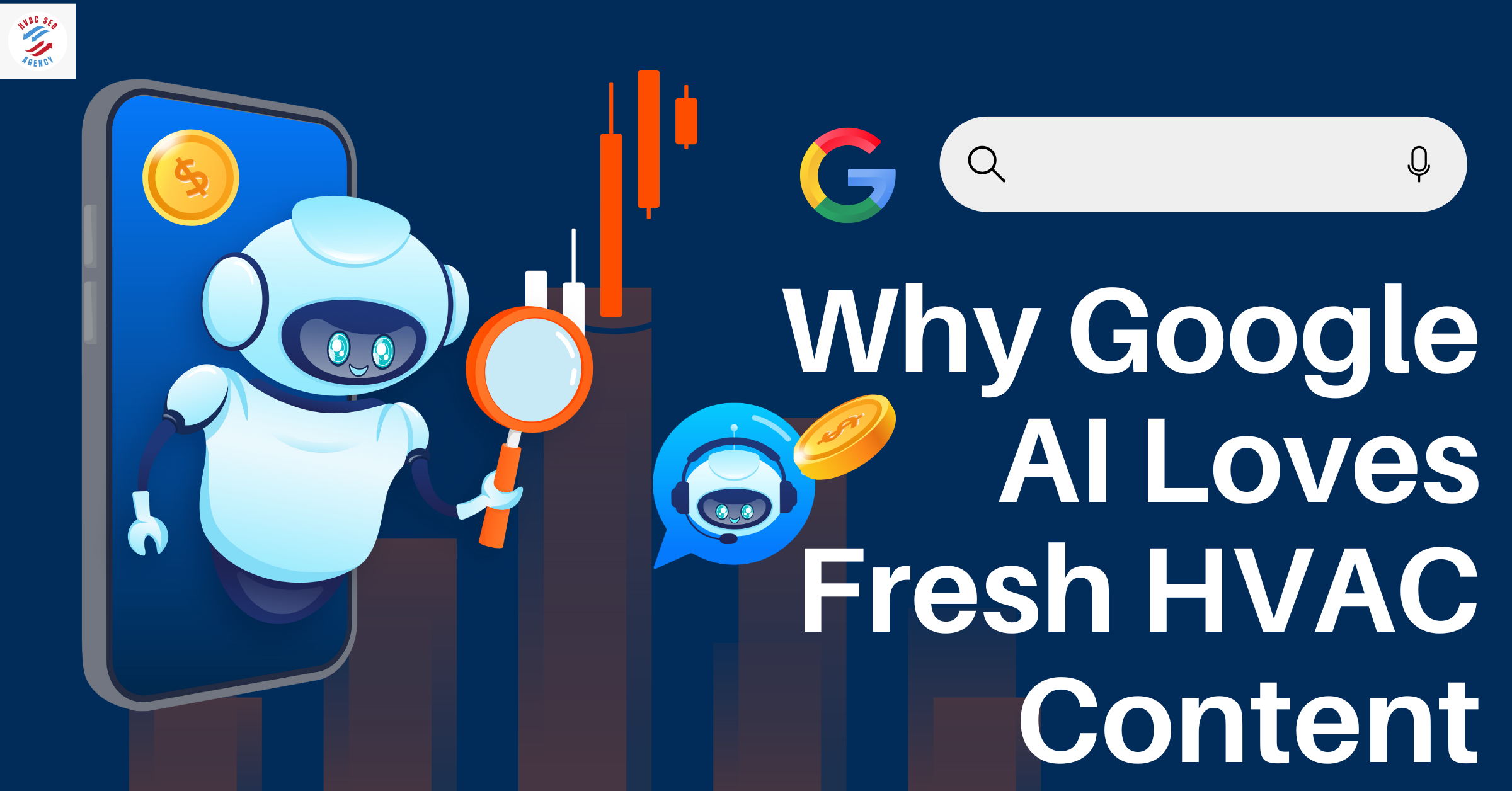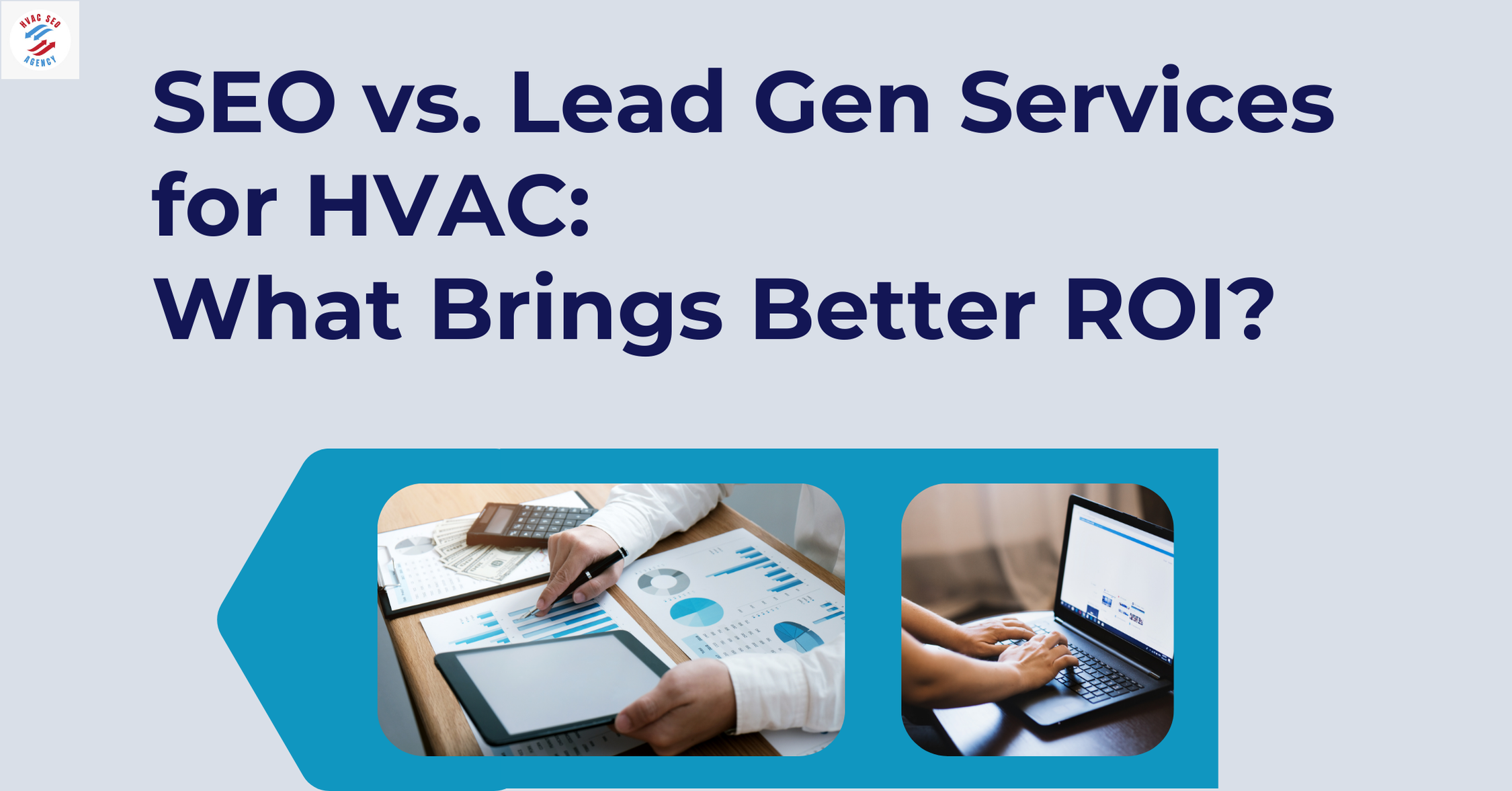How to Personalize HVAC Services for Better Customer Satisfaction
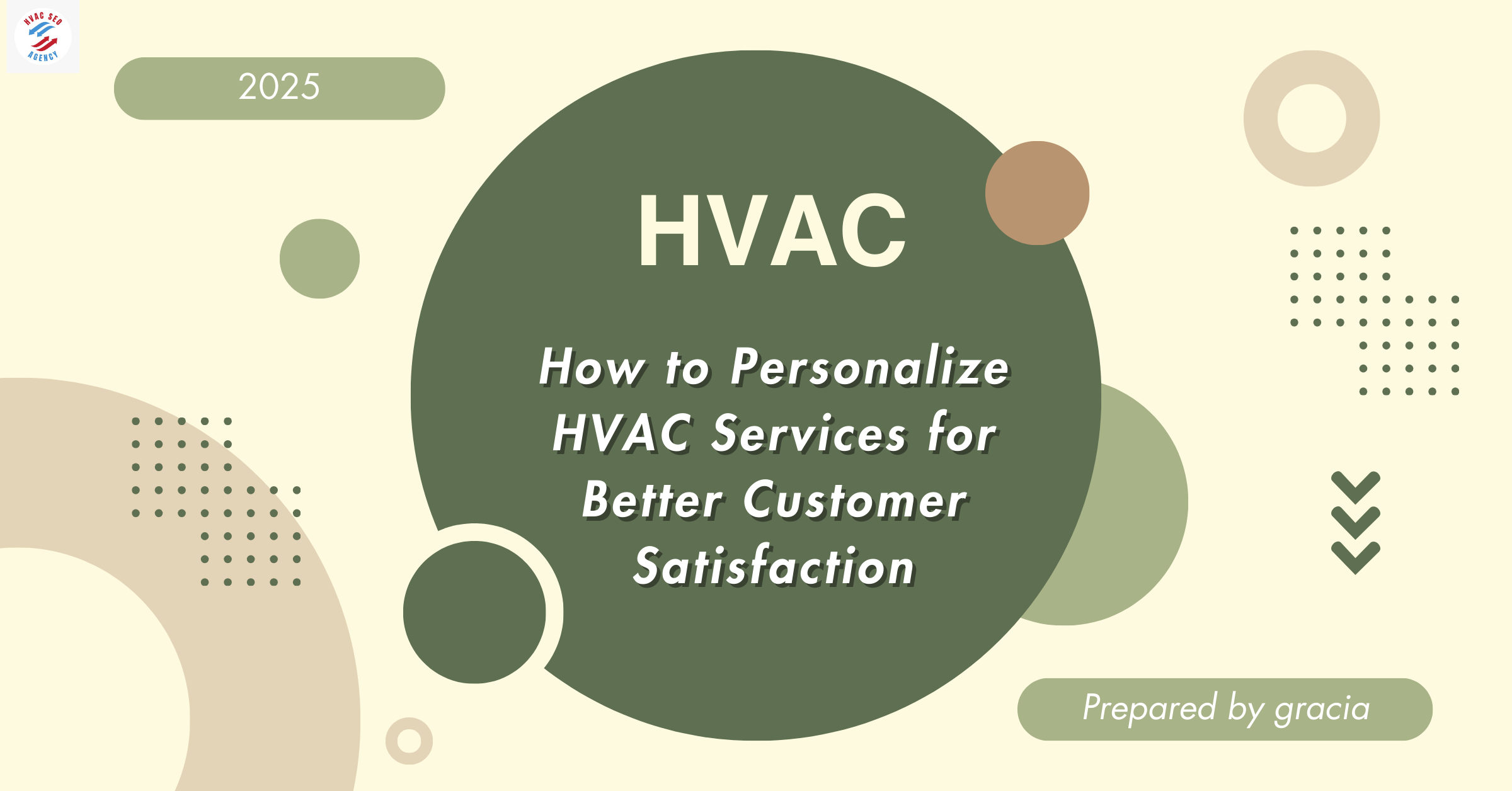
The New HVAC Standard: Why Personalization is the Future of Customer Satisfaction
In today’s highly competitive HVAC market, companies can no longer rely on one-size-fits-all service models. Personalization is becoming the new industry benchmark. Personalized HVAC services not only enhance operational efficiency but also directly impact customer retention, loyalty, and revenue growth. As the demand for smarter, more customized solutions rises, HVAC businesses must adapt their strategies to align with evolving customer expectations.
According to a 2024 survey by ServiceTitan, 76% of HVAC customers say they’re more likely to remain loyal to a company that personalizes their experience—whether through proactive maintenance alerts, custom climate control recommendations, or personalized equipment upgrade suggestions. The shift isn’t optional anymore; it’s critical.
One of the most powerful enablers of this shift is digital visibility—especially local search optimization. An HVAC SEO Agency plays a critical role in helping contractors target the right audience by optimizing for hyperlocal and intent-based queries. The better your business ranks when customers search “custom ductless AC installation” or “HVAC tune-up near me,” the more likely you are to attract customers seeking personalized HVAC services.
If you're operating in a competitive region, working with an Affordable HVAC SEO Agency in Dallas can provide an edge without exhausting your marketing budget. These agencies specialize in tailoring your content, local citations, and Google Business Profile for regional HVAC searches—ensuring customers looking for service in [City] find your brand first.
HVAC Personalization & SEO: The Data Behind the Strategy
Turning Friction into Loyalty: How Personalized HVAC Services Improve Customer Conflict Resolution
Customer satisfaction isn't just about flawless installations—it’s about how HVAC companies respond when things go wrong. Whether it's a missed appointment, an unexpected charge, or an underperforming system, personalized HVAC services give contractors the tools to de-escalate issues and rebuild trust with empathy and efficiency.
The most successful HVAC providers in the U.S. use tailored service history logs, smart diagnostic tools, and AI-driven customer profiles to deliver real-time solutions. When customers feel heard and understood, difficult interactions turn into lasting loyalty.
Practices for Handling Difficult HVAC Customers
To improve the HVAC customer experience, companies are implementing structured practices, such as:
Customized follow-ups with offers relevant to each customer’s home system.
Geo-specific service schedules that prioritize recurring problem zones.
Proactive maintenance reminders via text/email based on prior issues.
Conflict management training powered by real case data from past disputes.
Flexible service tiering, offering premium responses to recurring clients.
These practices for handling difficult HVAC customers reduce churn, increase word-of-mouth referrals, and enable more productive technician-client relationships. Data shows that a 5% improvement in customer retention can lead to up to 95% profit increases (Harvard Business Review, 2024).
Table: Benefits of Personalization in Handling Difficult HVAC Scenarios
Graph: Impact of Personalized Conflict Handling on HVAC Customer Retention (2021–2024)
Beyond the Fix: Why Post-Service Personalization Drives Repeat Business
While most HVAC companies focus heavily on pre-sale and in-service communication, the true test of long-term customer satisfaction often comes after the technician leaves the site. This is where the importance of follow-ups after an HVAC service call becomes a competitive differentiator.
Incorporating personalized HVAC services into post-service interactions is a proven strategy to increase brand trust, reduce callbacks, and encourage reviews. Following up doesn’t mean sending generic emails—it means using CRM data to reference the exact system serviced, the repair done, and proactive tips for system care.
The Importance of Follow-Ups After an HVAC Service Call
Builds trust: Customers feel valued when companies check in personally.
Reduces future complaints: Identifying post-service issues early prevents escalation.
Boosts reviews and referrals: A well-timed, personalized follow-up increases 5-star reviews.
Informs future personalization: Notes from follow-ups help improve long-term HVAC customer experience.
According to Podium's 2024 HVAC Consumer Insights report, 82% of homeowners are more likely to leave a positive review after receiving a personalized follow-up from their service provider. This one step alone can transform your business reputation online—where most customers are searching.
Table: Personalized vs. Generic Follow-Up Results
Source: Podium, 2024
Graph: Influence of Personalized Follow-Ups on HVAC Review Generation
Relationships That Scale: Personalization as the Foundation of HVAC Referral Success
While advertising and SEO are essential for visibility, referrals remain one of the most powerful growth engines in the HVAC industry. Personalized customer service doesn’t just lead to satisfaction—it inspires advocacy. When clients receive consistent, tailored service, they’re far more likely to recommend your business to friends, family, or local community groups.
To build a strong referral network in the HVAC industry, businesses must move beyond transactional relationships. Success lies in treating each customer as a long-term partner—remembering their preferences, anticipating their seasonal needs, and offering service plans that match their system and usage.
How Personalized HVAC Services Build Referral Loyalty
Tailored maintenance plans make clients feel like VIPs, encouraging word-of-mouth.
Seasonal check-in emails based on past service dates keep your brand top-of-mind.
Custom thank-you messages and referral incentives build trust and engagement.
Location-based referral campaigns allow customers to recommend you to neighbors within the same service radius.
Data from the Air Conditioning Contractors of America (ACCA) shows that referral-based leads convert at 36% higher rates than paid advertising leads—and are 50% more likely to result in long-term service agreements.
Table: Referral Conversion Metrics in HVAC (2024)
Source: ACCA, 2024 HVAC Marketing Trends Report
Graph: Growth in Referral-Driven Revenue for HVAC Businesses (2021–2024)
Automating with Intent: How Smart Tools Enhance Personalized HVAC Services
Technology is no longer just a backend support for HVAC businesses—it’s a frontline tool for delivering customized, high-value customer experiences. As demand for personalized HVAC services grows, the ability to automate without losing the human touch becomes a key differentiator.
Today’s leading HVAC companies are using intelligent platforms to store, analyze, and respond to customer behavior in real time. From service history logs to AI-powered predictive maintenance systems, these tools help businesses anticipate needs, schedule visits proactively, and deliver relevant content at the right moment.
Key Technologies Powering Personalized HVAC Services
CRM-integrated dispatch systems that tailor visits based on client preferences and equipment history.
IoT-enabled smart thermostats that feed live data back to service teams.
AI-driven chatbots that use customer data to provide personalized answers.
Predictive maintenance platforms that alert both the technician and customer when system health declines.
Automated feedback systems that prompt tailored follow-ups based on recent service.
According to a 2024 report from Deloitte, businesses using personalization-focused automation in HVAC saw a 46% increase in service agreement renewals and a 39% rise in average order value. When paired with expert human touch, automation doesn't depersonalize—it amplifies.
Table: Smart Tech Impact on Personalized HVAC Performance
Source: Deloitte HVAC Innovation Report, 2024
Graph: Increase in HVAC Agreement Renewals via Personalization Tools (2020–2024)
Data-Driven Decisions: Leveraging Customer Insights to Refine HVAC Personalization
As HVAC businesses grow and scale, the most successful ones don’t guess what customers want—they analyze real customer data to shape tailored experiences. With every service call, thermostat adjustment, or follow-up interaction, companies gather data that—if used right—can dramatically enhance personalized HVAC services.
Whether you're running a local outfit or scaling regionally, your team must be able to transform service logs, maintenance history, seasonal usage patterns, and even review sentiment into meaningful strategy.
How HVAC Businesses Use Data to Personalize the Customer Journey
Service frequency helps tailor proactive maintenance reminders and upsell timing.
System model data helps recommend compatible upgrades or energy-efficient retrofits.
Previous complaints inform technician prep and follow-up content.
Review patterns guide tone, content, and urgency of customer messaging.
Companies that actively use customer data to tailor service experience see, on average, 27% higher lifetime customer value, according to a 2024 report from Forrester.
Table: Customer Data Points That Impact HVAC Personalization
Source: Forrester CX Personalization Trends, 2024
Graph: Effect of Data-Driven Personalization on Lifetime HVAC Customer Value
Personalization Across Channels: Creating a Unified HVAC Customer Experience
Consistency is key when delivering exceptional personalized HVAC services. Whether a customer calls your office, visits your website, or reads a follow-up email, every touchpoint should reflect a unified understanding of their needs, preferences, and service history.
Fragmented messaging leads to frustration. But when personalization is applied across all channels—online booking, email, phone support, on-site visits, and reviews—the result is a seamless HVAC customer experience that builds trust and drives higher engagement.
How Multi-Channel Personalization Enhances the HVAC Customer Journey
Integrated CRM and website booking: Recognize returning customers and auto-fill service history for faster scheduling.
Technician apps with profile access: Provide on-site teams with exact preferences and previous issues.
Location-based mobile ads: Target customers with reminders based on local weather changes.
Email segmentation by system age: Send tailored offers for upgrades or servicing.
Consistent tone in phone scripts and chatbots: Reflect customer history and behavior for smoother conversations.
A 2024 report by Salesforce found that 71% of consumers expect businesses to offer personalized experiences across all channels—and businesses that meet this expectation report 23% higher customer satisfaction scores.
Table: Personalization Touch Points Across HVAC Communication Channels
Source: Salesforce Connected Customer Report, 2024
Graph: Customer Satisfaction Scores by Level of Multi-Channel Personalization (2020–2024)
Personalized Maintenance Plans: Why Heat Exchangers Are Key to Long-Term HVAC Success
Personalization in HVAC isn’t just about customer service—it’s about tailoring system care for maximum performance and lifespan. One of the most critical yet often overlooked components in this equation is the heat exchanger. Personalized HVAC services must account for how different homes, climates, and system uses affect the wear and function of these vital components.
To ensure optimal system efficiency and customer satisfaction, it’s essential to maintain heat exchangers for peak HVAC performance. These components regulate heat transfer and directly impact energy efficiency, air quality, and system reliability. When service plans are customized around the age, model, and environmental load on heat exchangers, both performance and customer trust increase.
Why You Must Maintain Heat Exchangers for Peak HVAC Performance
Prevents dangerous carbon monoxide leaks in cracked or damaged exchangers.
Improves energy efficiency by ensuring unrestricted airflow and clean heat transfer surfaces.
Extends system life by reducing strain on compressors and blowers.
Delivers consistent comfort through balanced heating performance.
Reduces emergency calls, saving money for both customers and contractors.
A 2023 study by the Department of Energy showed that HVAC systems with neglected heat exchangers lose up to 21% efficiency, while personalized maintenance reduces breakdowns by 34%.
Table: Impact of Heat Exchanger Maintenance on HVAC System Efficiency
Source: U.S. Department of Energy HVAC System Health Report, 2023
Graph: Efficiency Loss in HVAC Systems With and Without Heat Exchanger Maintenance
Training Your Team: Making Personalization a Company-Wide Standard
Personalized HVAC services aren’t just a marketing promise—they must be embedded into your company culture and technician workflow. Even the best CRM tools and automation platforms are only as effective as the people using them. That’s why investing in technician and support staff training is essential to delivering a seamless, high-value HVAC customer experience at every touchpoint.
To meet rising customer expectations, your team should understand not just technical tasks but also how to read customer behavior, system history, and personalization data to tailor every interaction.
How to Train Your HVAC Team for Service Personalization
Create customer empathy workshops that simulate real-life conflict and resolution cases.
Use service logs and CRM histories during technician briefings to ensure they arrive informed.
Train support staff on behavior-based communication, including tone matching and proactive engagement.
Gamify review generation by rewarding team members who drive personalized 5-star reviews.
Incorporate personalization KPIs into team performance evaluations and promotions.
According to a 2024 study by the HVAC Excellence Alliance, companies with formal personalization training see a 46% boost in customer satisfaction ratings and a 31% increase in upsell success during service calls.
Table: Technician Personalization Training Impact
Source: HVAC Excellence Alliance Workforce Report, 2024
Graph: Customer Satisfaction Before and After Personalization Training (2021–2024)
Combining Personalization with Paid Strategy: How PPC Amplifies Local Reach
While organic search and referral networks are foundational for HVAC growth, paid advertising—when executed strategically—can fast-track visibility in competitive markets. For HVAC businesses in high-density areas like Atlanta, using PPC for HVAC contractors in Atlanta becomes a powerful complement to personalized service models.
Personalization doesn’t stop at service delivery—it extends to your marketing strategy. HVAC companies are now using dynamic ad tools, custom landing pages, and retargeting systems to serve highly personalized, localized content to the right users at the right time.
Why PPC for HVAC Contractors in Atlanta Works Best with Personalization
Geo-targeted ads show up only for local, high-intent users.
Custom landing pages match user intent (e.g., emergency AC repair vs. energy-efficient upgrades).
Ad copy personalization improves click-through rates (CTR).
Retargeting ads use service history and on-site behavior to remind users about unfinished bookings or seasonal promotions.
Integration with CRM systems allows ad messaging to reflect existing customer relationships.
According to a 2024 Google Local Services Ads report, contractors in Atlanta using personalized PPC strategies saw a 59% lower cost per lead and 42% higher conversion rate compared to generic ads.
Table: PPC Campaign Performance – Personalized vs. Generic (Atlanta Market, 2024)
Source: Google Local Ads HVAC Performance Report, Atlanta 2024
Graph: Cost Per Lead for PPC HVAC Campaigns in Atlanta (Personalized vs. Generic)
FAQs About Personalized HVAC Services
1. What are personalized HVAC services?
Personalized HVAC services involve tailoring every aspect of the customer journey—from booking and diagnostics to maintenance and follow-ups—based on a client’s specific needs, location, system type, and service history.
2. How do personalized HVAC services improve the HVAC customer experience?
They increase convenience, reduce system downtime, improve energy efficiency, and build trust. When customers feel understood and valued, satisfaction and loyalty rise significantly.
3. Can small HVAC businesses afford personalization tools?
Yes. Many affordable CRM platforms and technician apps now support personalization features. Additionally, working with an affordable HVAC SEO agency in [City] can help small businesses implement scalable personalization strategies without breaking the bank.
4. How can I build a strong referral network in the HVAC industry?
By offering consistent, high-quality service that feels personal, rewarding referrals, and following up with satisfied customers to encourage them to recommend your services to others.
5. What’s the role of an HVAC SEO agency in personalization?
An HVAC SEO agency ensures your digital presence reflects your personalized service model. They optimize local listings, content, and PPC campaigns to match the intent and behavior of your ideal customers, helping you dominate local markets and generate high-quality leads.
Conclusion: Personalization Is Not a Trend—It's the Future of HVAC Success
The demand for personalized HVAC services is growing rapidly across the United States. Today’s homeowners expect their HVAC providers to understand their individual needs, offer proactive solutions, and communicate clearly across all channels.
By investing in staff training, smart technology, SEO optimization, and service-based personalization, HVAC businesses can improve customer satisfaction, reduce churn, and significantly increase revenue.
Whether you're optimizing your Google visibility through an HVAC SEO agency, targeting local leads via PPC for HVAC contractors in Atlanta, or refining internal processes to maintain heat exchangers for peak HVAC performance, the path forward is clear: personalization is no longer optional—it’s essential for growth and long-term success.


